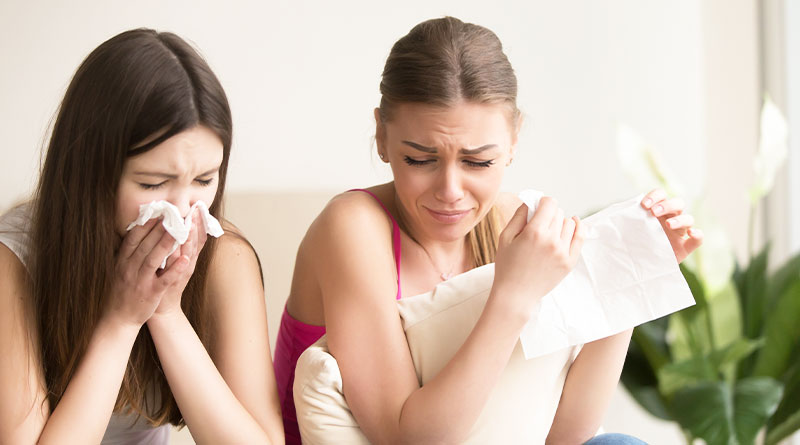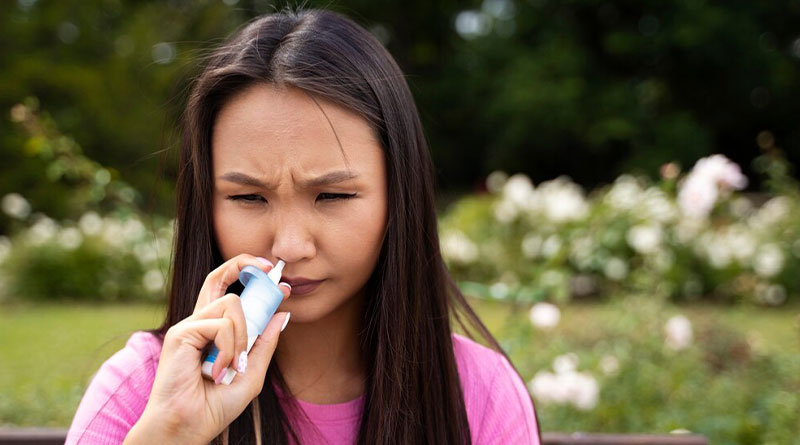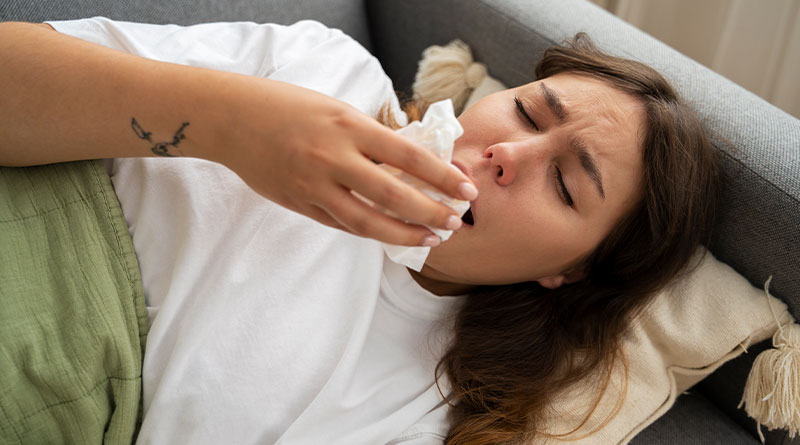Insect stings can be painful and uncomfortable, but for some people, they can also be life-threatening. Insect sting allergies are a serious condition that affects millions of people worldwide.
In this blog, we will discuss the symptoms, diagnosis, and treatment of insect sting allergies.
What Are Insect Sting Allergies?
Insect sting allergies occur when your immune system overreacts to the venom injected by an insect when it stings you. The venom contains proteins that can trigger an allergic reaction in some people. The severity of the reaction can vary from person to person, but in some cases, it can be life-threatening.
Bees, wasps, yellow jackets, hornets, and fire ants are the most common insects that can cause allergies. When these insects sting, they inject venom into your skin, which can cause a range of symptoms.
Symptoms of Insect Sting Allergies
The symptoms of an insect sting allergy can vary from mild to severe. Some people may only experience a small amount of swelling or itching, while others may have a more severe reaction.
The symptoms of an allergic reaction to an insect sting can include:
- Hives or rash
- Swelling of the face, lips, tongue, or throat
- Difficulty breathing or shortness of breath
- Abdominal pain, nausea, or vomiting
- Dizziness or fainting
- Rapid heartbeat or palpitations
- Anaphylaxis
Immediate medical attention is required for anaphylaxis, a severe and life-threatening allergic reaction. Symptoms of anaphylaxis can include:
- Swelling of the throat and tongue
- Difficulty breathing
- Low blood pressure
- Rapid or weak pulse
- Loss of consciousness
If you or someone you know experiences symptoms of anaphylaxis after an insect sting, call 911 or seek emergency medical attention immediately.
Diagnosis of Insect Sting Allergies
If you suspect that you have an insect sting allergy, it is important to see an allergist for proper diagnosis and treatment. Your allergist will take a detailed medical history and perform a physical exam to determine the cause of your symptoms.
In some cases, your allergist may perform skin tests or blood tests to confirm the diagnosis. Skin tests involve placing small amounts of allergens on your skin and observing your body’s reaction. Blood tests measure the number of specific antibodies in your blood that react to the venom.
Treatment of Insect Sting Allergies
The treatment of insect sting allergies will depend on the severity of your symptoms. Mild symptoms, such as swelling or itching, can often be treated with over-the-counter antihistamines or topical creams.
For more severe symptoms, such as anaphylaxis, emergency medical treatment is necessary. The first line of treatment for anaphylaxis is epinephrine, which can be self-administered using an auto-injector such as an EpiPen. Epinephrine works quickly to constrict blood vessels and open airways, relieving symptoms and preventing further complications.
After receiving emergency treatment, you may need to stay in the hospital for observation and additional treatment, such as intravenous fluids or oxygen therapy. Your allergist may also recommend allergy shots, also known as immunotherapy, to desensitize you to insect venom over time.
Prevention of Insect Sting Allergies
The best way to prevent insect sting allergies is to avoid getting stung in the first place. Some tips for avoiding insect stings include:
- Wear protective clothes, like long sleeves and pants, whenever going outside
- Avoid wearing brightly colored or floral clothing, which can attract insects
- Use insect repellent when outdoors
- Be careful when eating or drinking outdoors, as sweet and sugary drinks can attract insects
- Avoid walking barefoot in grassy areas where insects may be present, such as parks or fields
If you have a known insect sting allergy, there are additional steps you can take to reduce your risk of getting stung. These may include:
- It is crucial to have an epinephrine auto-injector with you at all times.
- Wearing a medical alert bracelet or necklace that indicates your allergy
- Avoiding outdoor activities during peak insect season
- Having your home and yard treated for insects by a professional pest control service
FAQs
Q: What insects are most likely to cause an allergic reaction?
A: The insects most likely to cause an allergic reaction include bees, wasps, hornets, yellow jackets, fire ants, and certain species of flies.
Q: What are the symptoms of an insect sting allergy?
A: Symptoms of an insect sting allergy can range from mild to severe and may include hives, swelling, itching, difficulty breathing, nausea, and dizziness.
Q: What should I do if I get stung by an insect and think I might be allergic?
A: If you suspect that you may have an insect sting allergy, it is important to seek medical attention immediately. Call 911 or go to the nearest emergency room if you experience any symptoms of a severe allergic reaction, such as difficulty breathing or swelling of the face or throat.
Q: How can I reduce my risk of getting stung by an insect?
A: To reduce your risk of getting stung by an insect, avoid wearing brightly colored or floral-patterned clothing, wear shoes, and socks when outside, and avoid areas where insects may be present, such as garbage cans and compost piles.
Q: How is an insect sting allergy treated?
A: An insect sting allergy is typically treated with medications, such as antihistamines and corticosteroids, as well as an epinephrine auto-injector. It is important to seek medical attention from an allergist for proper diagnosis and treatment.
Q: Can insect sting allergies be prevented?
A: While insect sting allergies cannot be prevented, there are steps you can take to reduce your risk of getting stung, such as wearing protective clothing and using insect repellent when outdoors. If you have a known allergy, be sure to carry an epinephrine auto-injector with you at all times and take additional precautions to avoid getting stung.
Conclusion
Insect sting allergies are a serious condition that can be life-threatening if left untreated. If you suspect you may have an insect sting allergy, it is important to seek medical attention from an allergist. With proper diagnosis and treatment, you can manage your symptoms and reduce your risk of experiencing a severe allergic reaction.
Remember to take steps to prevent insect stings, such as wearing protective clothing and using insect repellent when outdoors. If you have a known allergy, be sure to carry an epinephrine auto-injector with you at all times and take additional precautions to avoid getting stung.
By taking these steps, you can enjoy the outdoors and stay safe from insect stings and allergies.
Sahil Sachdeva is the Founder of curemedoc.com and a Digital Marketing professional with years of experience. If you need help in Content writing and want to increase your website ranking, connect with him, as he has some premium websites where you can share blogs with DoFollow links and increase your website’s ranking on Google.





